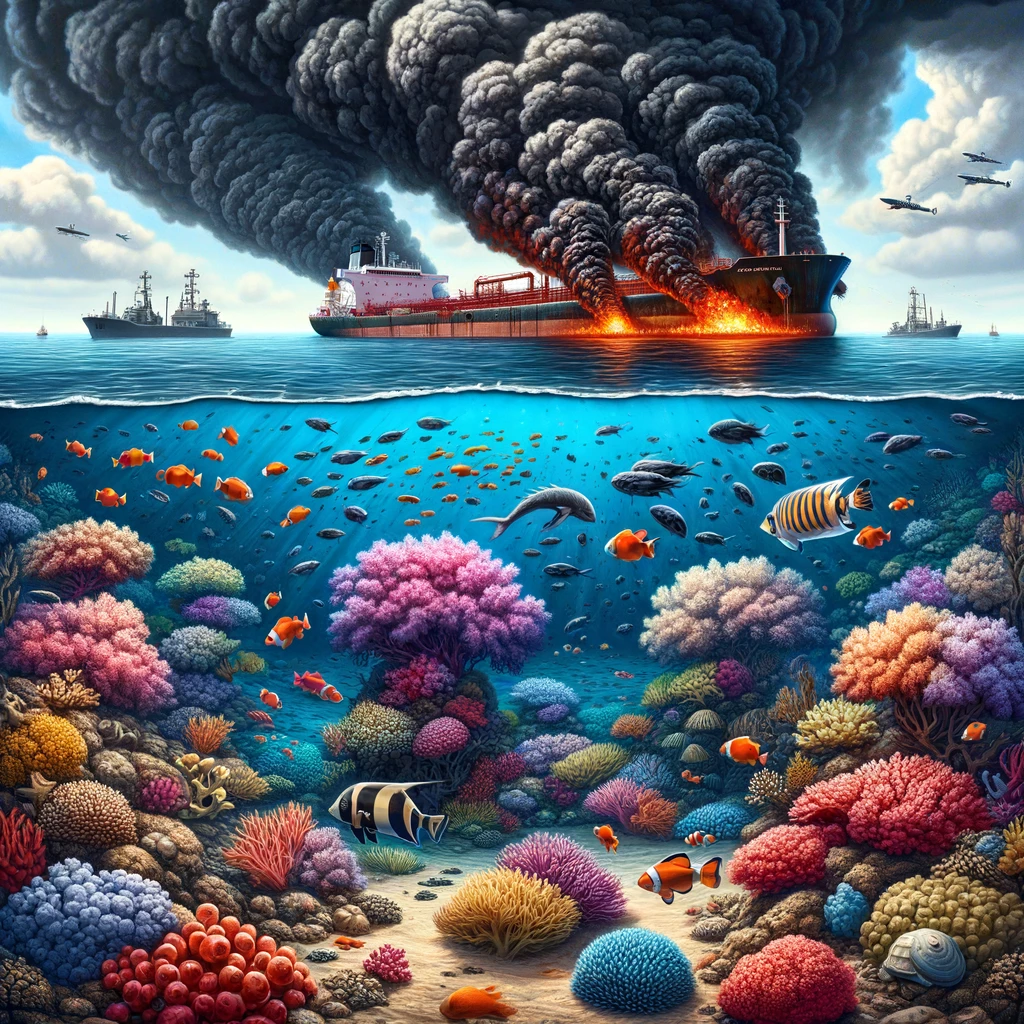The Red Sea crisis has escalated beyond its immediate impact on global trade, extending its tentacles into a broader environmental quandary.
The ongoing clashes, triggered by the recent Houthis' attack on the Marlin Luanda oil tanker, are not only exacerbating tensions in an already pressured region but also posing severe threats to ocean health.
As the conflict unfolds, the Red Sea's reef ecosystem, a lifeline for 28 million coastal inhabitants, faces imminent peril. Attacks on oil tankers since December 2023 compound existing environmental stressors, with potential oil spills posing a catastrophic threat to marine ecosystems, coral reefs, and already strained fish populations. The lack of maritime safety capabilities in the region amplifies the challenges associated with cleanup efforts.
Complicating matters further, the geopolitical dynamics in the region hinder cooperation for climate action. The recent United Nations mission, aiming to avert an oil spill from the FSO Safer supertanker, showcased the complexities surrounding ownership disputes and involvement of countries implicated in the Yemen war.
The long-term consequences of the Red Sea crisis extend beyond immediate risks, affecting shipping routes and redirecting traffic around the Cape of Good Hope. This substantial shift in maritime routes, exacerbated by climate-induced weather patterns, raises the specter of environmental disasters and increased greenhouse gas emissions.
For Africa, caught in the crossfire of economic, military, and environmental repercussions, urgent action is imperative. The continent must assert its agency in safeguarding its maritime domain, with a focus on diplomatic efforts to resolve the military crisis. Implementing international regulations, such as those by the International Maritime Organization, becomes crucial, and African-led initiatives like the Djibouti Code of Conduct can play a pivotal role in regional collaboration.
In this moment of crisis, Africa has the opportunity to lead by example, advocating for sustainable maritime practices, setting global standards for environmental stewardship, and emphasizing the critical link between environmental threats and security in diplomatic endeavors. The Red Sea crisis, though perilous, presents Africa with a defining moment to prioritize innovative solutions that harmonize maritime security and ecological responsibility.

Source: Institute of Security Studies





